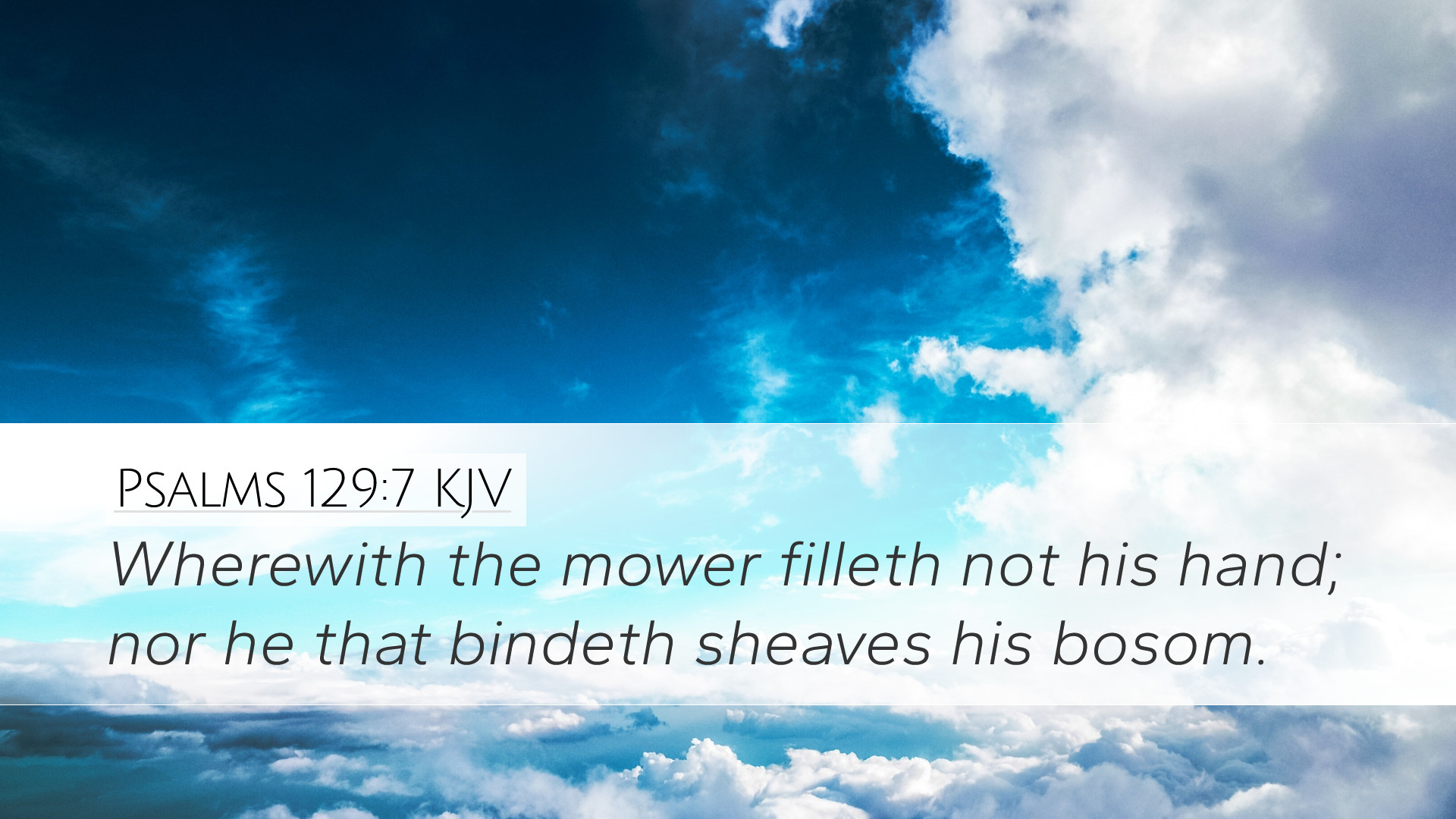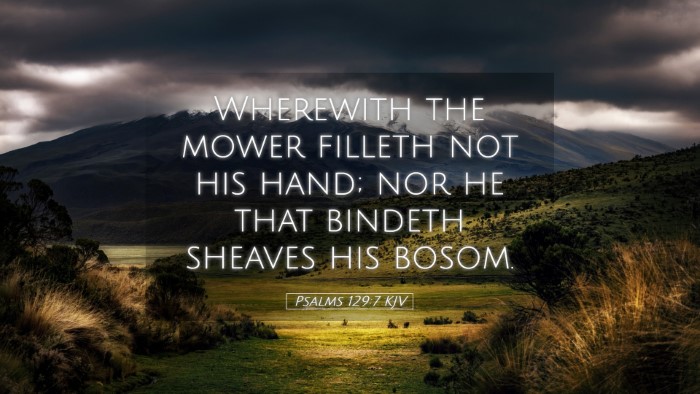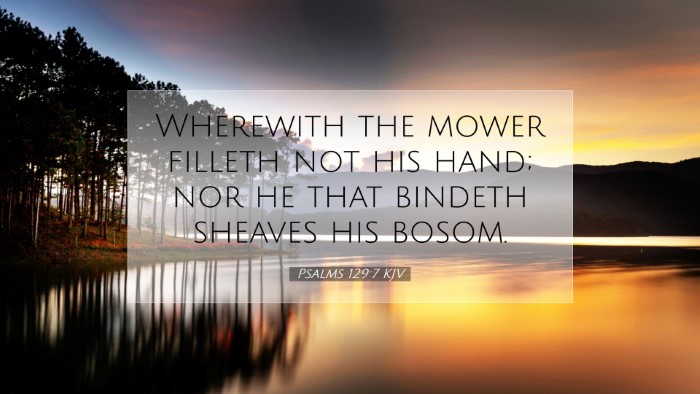Commentary on Psalms 129:7
Bible Verse: Psalms 129:7 - "Wherewith the mower filleth not his hand, nor he that bindeth sheaves his bosom."
Contextual Overview
This verse is situated in a song of ascent, reflecting the suffering and eventual triumph of God’s people, particularly the Israelites during times of oppression and distress. It metaphorically describes the resilience of God’s children, showcasing the contrast between adversity and God’s protection.
Exegesis and Insights
Historical Background: The psalm reflects a historical genesis wherein the Israelites had undergone significant trials, likely during the Babylonian exile or preceding events where they faced brutal oppression. The mowers and binders of sheaves symbolize the agrarian society of Israel, where the harvest bore witness to God’s blessing and prosperity.
Symbolism of Mowers and Sheaves
This verse employs agricultural metaphor to illustrate spiritual truths. The mowers, representing oppressors, are unable to gather or benefit from the harvested wheat, signifying that their attempts to undermine God's people ultimately fail.
Matthew Henry's Interpretation
In his commentary, Matthew Henry emphasizes that the verse conveys how the adversities faced by the Israelites do not yield success for their enemies. He articulates that the imagery of a mower filling his hand becomes a vivid depiction of desolation for those who oppose God's people. Henry argues that the fruitlessness of labor—where the worker cannot gather the harvest—is a divine assurance of God’s providence over His chosen ones.
Albert Barnes' Analysis
Albert Barnes suggests that the imagery focused on here underlines the futility of the enemies' efforts against the faithful. He draws attention to the cultural significance of the harvest in ancient Israel, noting that the ability to gather crops was intimately tied to blessings. When the psalmist asserts that the mower does not fill his hand, it underscores that God's people will ultimately find triumph over those who seek to oppress them.
Adam Clarke's Viewpoint
Adam Clarke provides a nuanced take, examining the societal implications of the verse. He notes that this expression reflects a period where toil yields little to those who are not in favor with the Lord. Clarke elaborates that this reflects a common theme: the transitory nature of suffering and the promise of divine restoration. The inability of the foes to gather the harvest serves as a metaphor for their spiritual shortcomings and disfavor.
Theological Implications
The verse encapsulates significant theological ideas, such as the certainty of divine justice, the protection of God over His people, and the ultimate futility of evil opposition against God’s will. This verse can be seen as an encouragement for believers facing trials, reassuring them that God sees their struggles and will ensure justice is served.
Application for Pastors and Theologians
This verse serves as powerful encouragement in pastoral settings, especially during times of loss, despair, or opposition. It invites reflection on the assurance of God’s sovereignty over life's circumstances—reminding congregations that while they may face trials, God’s justice prevails.
Reflection for Students of Scripture
For students and scholars, the verse invites deeper investigation into the use of agricultural imagery in biblical literature. It provides a fertile ground for discussing the nature of God’s providence and justice. The relationship between agriculture, labor, and reward within the covenant context can inspire a comprehensive study of biblical economics and divine favor.
Conclusion
Psalms 129:7 stands as a reminder of God’s faithful protection and the ultimate futility of human opposition against His will. The combined insights from Matthew Henry, Albert Barnes, and Adam Clarke enhance our understanding of this profound text, encouraging both reflection and application in the lives of believers. It calls all to trust in God’s justice and promises, providing comfort and understanding in an often-chaotic world.


